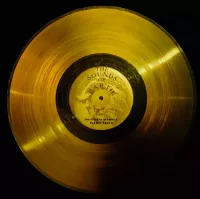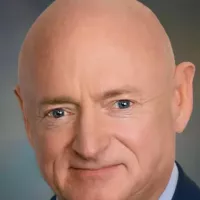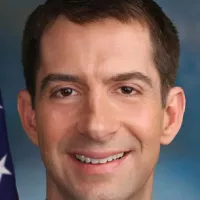Bucknell University, established in 1846 in Lewisburg, Pennsylvania, is a private liberal-arts college. Comprising the College of Arts and Sciences, the Freeman College of Management, and the College of Engineering, it offers a wide range of academic programs, including 65 majors and 70 minors in the sciences and humanities. Its 445-acre campus is situated south of Lewisburg overlooking the West Branch of the Susquehanna River.
1902: Christy Mathewson
In 1902, Christy Mathewson graduated from Bucknell University and later became a National Baseball Hall of Fame pitcher.
1902: Christy Mathewson Class of 1902
In 1902, Christy Mathewson graduated from Bucknell University. He would later go on to become a Baseball Hall of Fame pitcher for the New York Giants and the stadium would eventually be renamed in his honor.
1913: Robert Levi Rooke Class of 1913
In 1913, Robert Levi Rooke graduated from Bucknell, later becoming a member of the board of trustees and donating Rooke Chapel.
1923: Bison Suggested as Mascot
In 1923, Dr. William Bartol suggested the bison as the mascot of Bucknell University due to its location in the Buffalo Valley.
1924: Christy Mathewson–Memorial Stadium Built
In 1924, Christy Mathewson–Memorial Stadium was built. It is a 13,100-seat multi-purpose stadium.
1930: Steady Increase in Faculty and Students
By 1930, Bucknell University experienced a steady increase in both the number of faculty members and the student population.
1931: President Rainey commissions Bucknell's master plan
In 1931, President Homer Rainey commissioned architect Jens Larson to design Bucknell's master plan, which continues to influence the institution's expansion.
1932: Clarke Hinkle
In 1932, Clarke Hinkle graduated from Bucknell University and later became a Pro Football Hall of Fame Fullback/Linebacker.
1933: Faculty Loaned to Found Bucknell Junior College
In 1933, due to enrollment decline caused by the Depression, several Bucknell faculty members were 'loaned' to establish Bucknell Junior College in Wilkes-Barre, Pennsylvania.
1946: Ellen Clarke Bertrand Library Commissioned
In 1946, Bucknell University, under President Horace Hildreth, commissioned the Ellen Clarke Bertrand Library, which opened in 1951.
1947: Bucknell Junior College Becomes Independent
In 1947, Bucknell Junior College, originally founded by Bucknell University faculty, became independent and later known as Wilkes University.
1951: Ellen Clarke Bertrand Library Opens
In 1951, the Ellen Clarke Bertrand Library, commissioned in 1946, officially opened at Bucknell University, marking a significant addition to the campus.
1952: Ralph Waite
In 1952, Ralph Waite graduated from Bucknell University and later became an actor.
1954: Philip Roth
In 1954, Philip Roth graduated from Bucknell University and later became a novelist.
1957: Ken Langone
In 1957, Ken Langone graduated from Bucknell University and later became an investor and philanthropist.
October 25, 1964: Rooke Chapel Inaugurated
On October 25, 1964, Rooke Chapel was inaugurated at Bucknell University, made possible by a donation from Robert Levi Rooke in memory of his parents.
1965: Edward Herrmann
In 1965, Edward Herrmann graduated from Bucknell University and later became an actor.
1969: Peggy Kamuf
In 1969, Peggy Kamuf graduated from Bucknell University and later became a literary theorist and translator.
1971: Leslie Moonves
In 1971, Leslie Moonves graduated from Bucknell University and later became a CBS media executive.
1972: Tim Keller
In 1972, Tim Keller graduated from Bucknell University and later became an author and pastor of Redeemer Presbyterian in New York City.
1973: Peter Balakian
In 1973, Peter Balakian graduated from Bucknell University, later becoming a 2016 Pulitzer Prize winner for poetry.
1979: Rob Andrews
In 1979, Rob Andrews graduated from Bucknell University and later became a New Jersey congressman.
1983: Jane T. Elfers
In 1983, Jane T. Elfers graduated from Bucknell University and later became CEO of Lord & Taylor and The Children's Place.
1989: Christy Mathewson–Memorial Stadium Renovation and Renaming
In 1989, the multi-purpose stadium originally built in 1924 was renovated and renamed Christy Mathewson–Memorial Stadium to honor Christy Mathewson.
1990: Construction of the Rooke Chemistry Building
In 1990, Bucknell University saw the construction of the Rooke Chemistry Building, adding to the facilities for the sciences.
1991: New Biology Building Constructed
In 1991, a new Biology Building was constructed at Bucknell University, further expanding the science facilities.
2000: Weis Music Building Inaugurated
In 2000, Bucknell University inaugurated the Weis Music Building, enhancing the campus's facilities for music education and performance.
2000: Jessica Jackley
In 2000, Jessica Jackley graduated from Bucknell University and later became an entrepreneur.
2002: O'Leary Building Opens
In the fall of 2002, the O'Leary Building for Psychology and Geology opened at Bucknell University, providing new facilities for those departments.
2003: Kenneth Langone Recreational Athletic Center Opens
In 2003, the new Kenneth Langone Recreational Athletic Center opened at Bucknell University, providing modern athletic facilities.
2004: Breakiron Engineering Building Opens
In 2004, the Breakiron Engineering Building opened at Bucknell University, adding to the facilities for engineering programs.
2005: Men's Basketball Team Wins NCAA Tournament Game
In 2005, the Bucknell men's basketball team won an NCAA tournament game, upsetting Kansas 64–63, and received the honor of "Best Upset" at the ESPY Awards.
April 2013: Geisinger-Bucknell Autism and Developmental Medicine Institute Formed
In April 2013, the Geisinger-Bucknell Autism and Developmental Medicine Institute was formed, combining clinical treatment and research.
2013: Mike Muscala
In 2013, Mike Muscala graduated from Bucknell University and later became a professional basketball player.
2015: Post-Graduate Study
Between 2015 and 2021, 18% of Bucknell University students pursued post-graduate study within nine months of graduating.
2016: Peter Balakian Wins Pulitzer Prize
In 2016, Peter Balakian, a 1973 Bucknell graduate, won the Pulitzer Prize for poetry.
2017: Addition of the Freeman College of Management
In 2017, Bucknell University added the Freeman College of Management, balancing liberal arts with pre-professional training.
2017: Bucknell Humanities Center Opened
In 2017, the Bucknell Humanities Center opened with the inauguration of Hildreth-Mirza Hall, dedicated to promoting humanistic inquiry.
2018: Bucknell Farm Established
In 2018, Bucknell Farm was established, building on the Lewisburg Community Garden, offering learning and service opportunities and providing fresh produce.
2021: Holmes Hall Inaugurated
In 2021, Holmes Hall was inaugurated as the newest building on Bucknell University's campus.
2021: Largest Majors in 2021
In 2021, the largest majors at Bucknell University were Accounting and Finance (79 graduates), Political Science and Government (76 graduates), and Economics (67 graduates).
2021: "Non/Humanity" Theme
The Bucknell Humanities Center's annual themed programming for 2021–22 included the theme "Non/Humanity".
2022: Test Optional Policy
Beginning in 2022, Bucknell, like most of its peer institutions, became test optional, allowing applicants to choose whether to submit SAT and ACT scores.
2022: Freeman College of Management Ranked 17th
In 2022, The Freeman College of Management was ranked 17th among undergraduate business schools after four years as an independent college.
2022: Solar Array Installed
In 2022, a 1.76-megawatt solar array was installed at Bucknell University, reflecting the institution's commitment to carbon neutrality by 2030.
2022: Bucknell Placed 27th
The 2022 edition of the Times Higher Education U.S. College Rankings placed Bucknell 27th among U.S. liberal arts colleges.
2022: "Pandemics" Theme
The Bucknell Humanities Center's annual themed programming for 2022–23 included the theme "Pandemics".
2023: Bucknell Greenway Project Begins
In 2023, Bucknell University began the first phase of the Bucknell Greenway, a 4-mile recreational path around campus, connecting to athletic fields.
2023: Century Plant Blooms
In 2023, the Century Plant (Agave americana) in Bucknell Greenhouse bloomed for the first time in thirty years.
2023: "Colonial Entanglements" Theme
The Bucknell Humanities Center's annual themed programming for 2023–24 includes the theme "Colonial entanglements".
2024: Bucknell Ranked 7th
According to the 2024 edition of the U.S. News & World Report college ranking, Bucknell was ranked 7th among American colleges that do not offer a PhD in engineering.
2024: Active Fraternity and Sorority Chapters
As of 2024, Bucknell University has seven active fraternity chapters and nine active sorority chapters.
2024: Class of 2028 Enrolled
In Fall 2024, Bucknell University enrolled the Class of 2028 with 994 students.
2024: Forbes Rated Bucknell 93rd
The 2024 edition of Forbes rated Bucknell 93rd in its list of "America's Top Colleges" and 22nd among liberal arts colleges.
2025: Bucknell Tied for 31st
In the 2025 edition of U.S. News & World Report, Bucknell tied for 31st in the "National Liberal Arts Colleges" category.
2028: Class of 2028 Enrollment Statistics
For the Class of 2028 (enrolled Fall 2024), Bucknell University received 11,377 applications and accepted 3,291 (28.9%), with 994 enrolling (30.2% yield rate).
2030: Target Date for Carbon Neutrality
Bucknell University has committed to achieving carbon neutrality by 2030, aiming for long-term environmental sustainability.
Mentioned in this timeline

Basketball is a team sport played on a rectangular court...
CBS Broadcasting Inc CBS is a prominent American commercial broadcast...
Pennsylvania is a U S state located in the Mid-Atlantic...

News encompasses information about current events disseminated through various media...

Football is a family of team sports primarily involving kicking...

Music is a cultural universal involving the arrangement of sound...
Trending
Emeka Egbuka is an American football wide receiver for the Tampa Bay Buccaneers of the NFL He played college football...

8 months ago Kelly & Mark bid adieu to 'Live' studio after 37 years; career update.
2 months ago Lululemon and NFL Partner for Apparel Collection Representing All 32 Teams
4 months ago Fenerbahçe seeks advantage against 'Flying Dutchman,' Azeri TV cheers, stands with Palestine.
8 months ago Bucknell Sued After Hazing Allegedly Leads to Freshman Football Player's Death
29 days ago OpenAI's GPT-5.1: Smarter, Conversational ChatGPT with New Personalities and Improved Speed.
Popular

Candace Owens is an American conservative political commentator and author...

Ilhan Omar is an American politician currently serving as the...
Matt and Ross Duffer known as the Duffer Brothers are...

XXXTentacion born Jahseh Dwayne Ricardo Onfroy was a controversial yet...

Tom Cotton is an American politician and Army veteran currently...
The Kennedy Center Honors are annual awards recognizing individuals and...